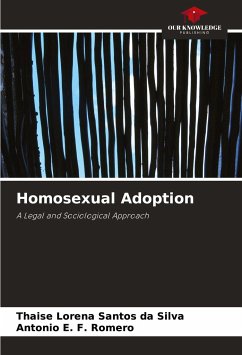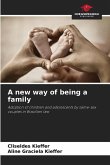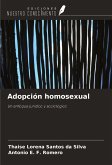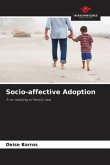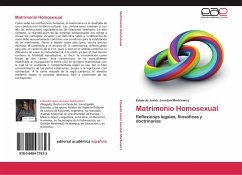This work deals with the history and evolution of social movements in Brazil, the history of the family institution, its various conceptualisations and purposes acquired throughout its evolution and how this institution is viewed today by the Brazilian legal system, and finally the history and evolution of the institute of adoption. Moving on from the family institution, the institute of adoption began, which, like the family, has undergone countless changes over time, from a selfish attitude aimed solely at guaranteeing assets and the continuity of the family cult, to an act of love and solidarity. We also sought to analyse psychological studies on the subject of homosexuality and the development process of a child whose parents' sexual option is homosexual. In order to analyse the doctrinal material collected, the Phenomenological-Hermeneutic method was used to verify the application of the concepts and legal provisions to the factual reality of these homosexual unions in relation to the institute of adoption, with the aim of demonstrating the deficiency of Brazilian law in relation to the chosen theme.
Bitte wählen Sie Ihr Anliegen aus.
Rechnungen
Retourenschein anfordern
Bestellstatus
Storno

